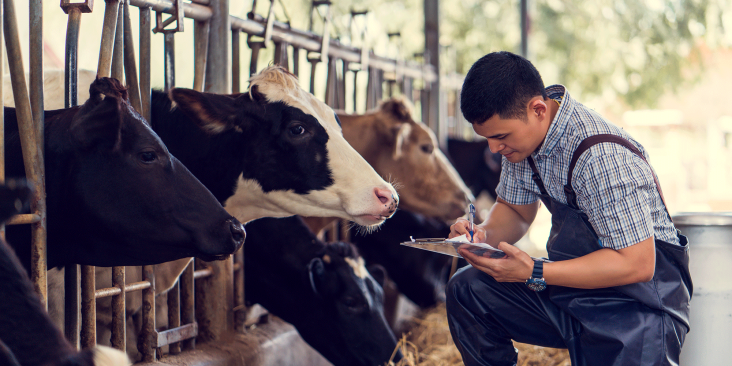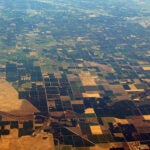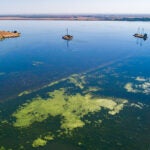Water has finally reached the highest levels of global climate negotiations. The path to a sustainable freshwater future, however, lies with ground-level users. At COP 28, EDF is elevating their voices, their needs and the approaches they find most useful.
_______
While greenhouse gases drive climate change, many of its impacts are inherently liquid. Whether through drought, flood, sea-level rise, or contamination, water increasingly forms the turbulent core of the climate crisis.
Over the past year, this basic reality was finally acknowledged at the global planning table. Thanks to a strong push from its Egyptian hosts, last year’s edition of the main UN climate conference, COP 27, made water a central theme. The cover decision — the summation of the conference’s key agreements — featured water and food for the first time. The decision acknowledged the central role of water in countering climate impacts and called for water-related targets in national climate planning.
On paper, this was a breakthrough. 2015’s Paris Agreement didn’t mention water once and COP organizers have long resisted calls to introduce it, citing concern with potential distraction from core emissions negotiations.
The shift in positioning at COP 27 has precipitated a year of high-level, high-profile discussion of water as a core climate issue. For the first time in 50 years, the UN convened a global conference on water in March 2023. A few months later, World Water Week 2023 spotlighted unfolding water-related commitments in global climate discussions. Now, as COP 28 kicks off in Dubai this week, the UAE presidency has promised to “drive water up the climate agenda” and listed water as a core priority for the entire conference.
While it’s encouraging to see water finally reach the highest levels of the climate conversation, we urgently need to see movement on the ground. It is ground-level frontline users who simultaneously: 1) confront increasing water scarcity, excess, and contamination issues daily, 2) carry under-utilized knowledge on a wide spectrum of local water solutions and 3) can, if allowed, wield impactful decision-making power that could push the world closer to a more sustainable freshwater future.
That’s why EDF is bringing ground-level perspectives on water management to COP 28. We’ve invited farmers from the Global South, Indigenous leaders and partners working on localized solutions — particularly on the food-water nexus — to share their perspectives, their needs, and the approaches they find most useful.
Here are three messages we’re helping them bring to the global table:
1) Food producers are key to achieving global freshwater security.
Water security is deeply entangled with agriculture. Communities working together on the dual challenges of securing food and water can be traced back to the beginning of agriculture itself. Not far from the COP28 hub in Dubai, the earliest recorded irrigation mechanisms along the Nile, Tigris, and Euphrates served to control flooding, mitigate drought, and sustain farmers and local communities.
Water has become so ubiquitously intertwined with food systems that it has seemingly become an afterthought and is treated as an unlimited resource. Yet climate change and population growth are placing unprecedented pressure on water availability.
To compound the problem further, food and water systems remain in deep management siloes with limited collaboration and coordination between key government agencies, users, and financial lenders.
That’s why EDF is making ground-level alignment of food and water policy a key emphasis at COP. We’re helping to curate a full day of food and water programming that cuts across the conference’s pavilion lines and centers Indigenous knowledge holders’ and local farmers’ perspectives on pathways to integrating sustainable water management in food production.
If we are to achieve meaningful action on the integration of food and water governance and finance we need to understand and address the obstacles and opportunities that food producers and water managers face in achieving sustainable on-farm water use.
2) Ground-level water users need access to open, real-time data.
Perhaps the most fundamental barrier to water sustainability faced by farmers and other users is simply a lack of dependable, up-to-date information on local water use and availability. Water is notoriously elusive. Groundwater is especially so. A panel of African farmers and policymakers at this year’s World Water Week put it bluntly: “when it comes to groundwater, we’re driving without a fuel gauge.”
That’s why EDF is highlighting new food producer-focused water data platforms, such as OpenET, at COP this year. Developed by a broad public-private partnership, OpenET provides easily accessible satellite-based estimates of evapotranspiration — a key measure of the water used to grow food.
Crucially, in a sector where information was limited and expensive, this data is field-level and free.

OpenET provides easily accessible satellite-based estimates of evapotranspiration (ET) for improved field-level water management.
3) Water management must be local.
As the recent UN Interconnected Disasters report underlined, groundwater depletion is a fundamental threat to a secure water future. Groundwater involves a unique level of self-governance — many users access groundwater via a very local, if not personally-owned borewell. This is both a blessing and a curse. Areas such as post-Green Revolution South Asia and suburbanizing Central Texas serve as cautionary examples of the dangers of runaway individual pumping.
Yet, this local, often individual, management power also has tremendous potential. Equipped with accurate data, policy pathways and venues for collaboration, local users can — and already have — made headway in managing their groundwater more sustainably. In the arid western United States, for example, local residents have successfully created active groundwater management areas aimed at bringing groundwater use to sustainable levels.
Robust local governance is key to the global water crisis. That’s why EDF’s groundwater work seeks to support locally-born initiatives that enable self-governance.
There is no silver bullet, one-size-fits-all solution for water management. Local needs and local context, especially amongst historically marginalized and underrepresented groups, must drive local action.
As we celebrate water entering core climate conversations this week in the UAE, we would do well to remember the needs, the ideas, and the potential power of ground-level users in fields and towns far from the gleam of Expo City Dubai. At stake is the prospect of a viable, vital water and food future for all.
_______
Follow EDF’s water- and food-related events at COP 28:
OpenET showcase
Dec 2, 09:30, Water Pavilion
High-level Reflections: Innovation to Action
Dec 2, 16:30, Water Pavilion
Rising to the Challenge: Bridging Water and Food Ways of Knowing for Sustainable Food System Transformation
Dec 10, 9:30, Food Systems Pavilion
Food Systems Press Briefing and interview with frontline producers
Dec 10, 12:30, Food Systems Pavilion
Championing Global Food Systems Transformation
Dec 10, 14:00, Food Systems Pavilion
Forgotten Foods and Future Harvests—Enabling Food Producers to Thrive in a Climate-Impacted World
Dec 10, 15:15, Food Systems Pavilion
Promoting the declaration of 2028 as “Year of Saline Agriculture”: Climate resilient agriculture for sustainable Production Systems and healthy ecosystems in salt-affected areas
Dec 10, 18:00, Food Systems Pavilion
Joint Food and Water Reception
Dec 10, 18:30, Water Pavilion












